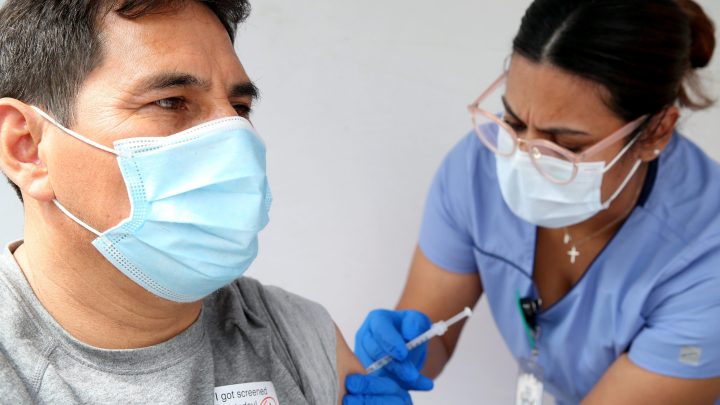
How California’s expansion of health coverage is affecting low-income undocumented immigrants
How California’s expansion of health coverage is affecting low-income undocumented immigrants

For a decade, Jonathan Mejia with St. John’s Community Health has been sitting down with low-income immigrants in Southern California — many undocumented — to help them pay for health care.
“We would definitely have to explain how the programs work, what the programs require. They’re very fearful of enrolling or applying into these programs due to immigration statuses,” Mejia said.
In the new year, those conversations got easier, as California is spending big on health care: All low-income undocumented immigrants are eligible for coverage under the state’s version of Medicaid, Medi-Cal. The state added undocumented immigrants ages 26 to 49 into eligibility, costing the state an additional $2.6 billion annually.
“Now, we let them know it’s an insurance so they are able to see a lot more specialists a lot more providers,” Mejia said. “If they’re diabetic, they can go ahead and see different types of diabetic specialists at no cost.”
His network of clinics has signed up 13,000 existing patients for the newly available insurance. And hundreds more who haven’t been served by these clinics before are now coming through the doors.
It’s a notable expansion, according to Julia Gelatt, associate director of the U.S. Immigration Policy Program at the Migration Policy Institute.
“We have seen other states start to move in this direction. But in most states, people who don’t have legal status aren’t eligible for our public health insurance,” she said.
The expansion adds to the $37 billion Medi-Cal program. Some of that expense may bring savings elsewhere, explained Stanford economist Adrienne Sabety. She studied health costs among undocumented people in New York City with chronic conditions.
“Quite a few of these individuals used actually the emergency department setting for things that could be treated in the primary care context,” she said.
To test the impact of primary care, they set people up with doctor’s appointments. As a result, fewer people needed to go to the emergency room and were able to “save about $500 in emergency department charges,” Sabety said.
Which makes sense. “On average, emergency care is more expensive than preventative treatment,” said Drishti Pillai with health policy research group KFF.
Researchers have found immigrants actually pay more into the health care system than they get out of it, Pillai said.
“Whereas for U.S. citizens, the amount that they spend on taxes and on health insurance premiums is less, on average, than the health care that they utilize,” she said.
In other words, immigrants — and undocumented immigrants in particular — subsidize health care for the U.S.-born.
There’s a lot happening in the world. Through it all, Marketplace is here for you.
You rely on Marketplace to break down the world’s events and tell you how it affects you in a fact-based, approachable way. We rely on your financial support to keep making that possible.
Your donation today powers the independent journalism that you rely on. For just $5/month, you can help sustain Marketplace so we can keep reporting on the things that matter to you.

















